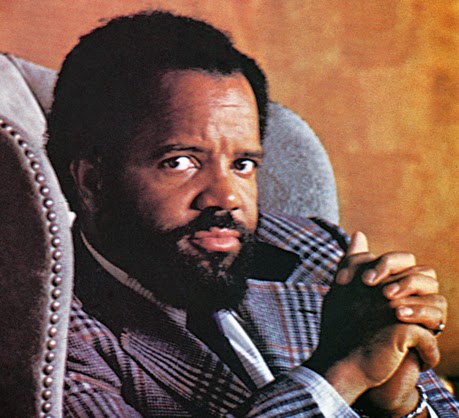“My girl, My girl, Talkin’ bout my girl!” Does this song ring a bell? It should. It’s one of Motown’s biggest hits by The Temptations. Yes the all-boy group in suits and ties. Sharp from head to toe and giving you those funky moves, while sliding from one side of the floor to another. You might be asking, What is Motown, what is she talking about. I’m talking about one of the largest black-owned record companies in the 1960s. Owned by the man himself, Berry Gordy, the brains behind it all. Many know the artists that Motown Records established, like Diana Ross, Smokey Robinson, Stevie Wonder, Marvin Gaye, and The Jackson Five. Before the rise of Motown and the fame it achieved, Berry Gordy, from humble beginnings, started his career in the record business from the bottom, and had to make his way to the top. Using the resources he had, he transformed his home into a recording studio, and took his vision and made it a reality.1
In 1961, Gordy hung a sign on his property, naming the house Hitsville U.S.A. He later explained that the sign symbolized the idea that when you come into this house, be prepared to sing, dance, write, produce, sell, or manage great music. Gordy’s company was a gateway for many black artists who would otherwise never have had an opportunity to enter the music business. Most of the artists Berry signed for his label were extremely young. The Supremes were still in high school! In Florence Ballard’s book The Lost Supreme, Ballard writes about how Diana Ross and Mary Wilson had to convince her parents to let her come sing with them. Berry actually denied them the first time they auditioned, telling them that they were too young, and to come back when they graduated. Berry was very strategic and particular on how he wanted his artist to look, a characteristic he gained from his experience working on the assembly line in the Lincoln Mercury car factory years earlier. Just like an assembly line worked, he wanted to take a piece of raw talent and turn it into an award winning artist. Most of the artists had potential, but were unsophisticated in terms of the music industry’s standpoint. Maxine Powell, who ran her own “Finishing and Modeling School,” taught the artists how to be elegant, and she tutored them in elocution. It was very important for them to do everything gracefully and with poise. She develop their social skills, like how to smoke a cigarette with class, or how to exit a limousine elegantly. Berry Gordy said that Mrs. Powell “brought something to Motown that no other record company had,” adding about the artists, “She was tough, but when she got through with them, they were poised, professional and very thankful.”2
Not only were his artists unique; so was their music. The Motown Sound was rare and exclusive, and other record companies found it hard to replicate that sound. Motown’s secret weapon was The Funk Brothers. This band played exclusively for Motown, and their sound is behind all the groups, from The Supremes to The Temptations. Many people think that the singers, producers, and songwriters made the “Motown sound,” but it was actually The Funk Brothers, who have rarely been given the credit or recognition for their work that they are due. Berry, thinking as a business man thought, felt that it was not a good idea to reveal who they were, because the musicians were a lot older than the artists, and the Motown sound was about young America, and having a youthful feeling.3
The music was joyous, sad, romantic, grooving, and moving. The music was full of great melodies and harmonization, lots of tambourines and hand-clapping, blaring horns, driving bass lines, with an interplay between the lead singers and their backup vocalists. Gordy was about perfection, and he set up a quality-control process to weed out anything that didn’t meet his standards. All final recordings were brought to the quality-control department. He asked for opinions from a panel of listeners, a rhythm-and-blues version of a focus group. They included Gordy’s own family, top talent like Smokey Robinson, Motown secretaries, and people brought in off the street just to be listeners. Gordy would ask them the question, “If you had only enough money for this record or a sandwich, which would you buy?” That process allowed the “Motown sound” to become a trademark. The record-buying public soon learned that a Motown single was always worth more than the cost of a sandwich. Berry was always on top of it; he also kept a watchful eye on the record charts, and quizzed young people about their taste in music. For Berry to make his records outstanding, he checked to make sure that Motown had all the gleaming and smooth-rhythm of pop music but still would be able to maintain the funkiness of soul music.4
At the beginning, Gordy just wanted to write music just for the girl bands, but it became bigger than he thought. Not only did people all over the world listen to his music, big rock artists did too, even from the UK. This opened many doors for Motown, which led to a UK tour. Motown had many influences on pop music. But it also influenced black communities and the social problems it faced in the turbulent 1960s. While Gordy rarely wanted his musicians to take on controversial issues in their songs, he did release Marvin’s Gaye hit, “What’s Going On,” which did address those issues. At first, Berry was hesitant on releasing the song because it was political. But Marvin insisted, and in 1971 “What’s Going On” was released and broke many barriers. It touched on racism, war, and other social issues, but did so in a peaceful way. It became #1 on the R&B charts, and #2 on the billboard charts. A fact that many don’t know is that Marvin and Berry did not always have a great relationship. Marvin married Berry’s sister Anna Gordy, but consistently cheated on her. Therefore, that made tension between the two of them. Marvin says that Anna saved his job at Motown Records.5

Over time, Motown lost some of its early touch and appeal. Many of the artists at Motown became very dissatisfied. Some artists thought that they were not getting enough credit for their work, like the writing team of Brian Holland, Lamont Dozier, and Edward Holland Jr., who ended up filing a lawsuit against Motown. Stevie Wonder also left Motown, wanting to break out of the “Motown sound” and make his own sound, which he did. Diana Ross left the label for a 20 million dollar deal, and this action broke Berry’s heart. Berry and Diana had had a love affair, but Diana put her first love before anything, and that was her music. Motown continued to be successful in the 1970s by bringing in new artists, but it just wasn’t the same. Eventually Berry Gordy sold Motown Records for 61 million dollars. What Motown brought to the world will never be repeated. It gave hope to black people, brought diversity into music, and, last but not least, it gave us all the feeling of fulfillment, and joy.6
- Columbia Electronic Encyclopedia, 2017, s.v. “Berry Gordy, Jr.” ↵
- Louie Robinson, “Why Diana Ross Left The Supremes,” Ebony 25, no. 4 (1970): 120. ↵
- Standing in the Shadows of Motown, directed by Paul Justman, Los Angeles, CA, Artisan Entertainment, DVD ↵
- “Berry Gordy and the Motown Sound,” The Daily Observer (July 25, 2014). ↵
- “Anna Gordy Gaye; Glamorous sister of Motown founder Berry Gordy who had a tempestuous marriage to Marvin Gaye,” The Times (London, England), 2014. (October 10, 2017); “The Supremes presented glamourous black women to the nation,” The Philadelphia Daily News (January 25, 2013 ). ↵
- “The man behind the Motown sound ‘One day this white station started playing our music and … it just took off’,” Sunday Herald Sun (December 14, 2008). ↵



25 comments
Saira Locke
I found this article to be very interesting! Berry Gordys record company is something I find very appreciative to music nowadays. His main focus was to get people that had talent and were unique in their own way to get there reignition that they deserved. In today’s music there are so many artist that nobody has heard of that are very talented they just don’t have a record deal.
Alexander Avina
This was definitely an interesting and helpful read for me. I plan on writing my next article about a topic that involves the music industry. It was great to have some reference to how an article of this genre is written. I thought you did a magnificent job in making this article both informative and captivating. I never would’ve known about Berry Gordy if it had not been for this article.
Audrey Uribe
Loved reading this article as memories flooded through my head from just reading the first sentence. I never knew much about the amazing artist behind the catchy and lively song but I am very appreciative of Berry Gordan and his record company, Motown which was centered around helping the black community enter the music industry. I am amazed to hear of all the amazing artist that were signed with Motown. Exclusively, such as The Funk Brothers (which I love). I think it was important for the label to put their view of racism, war and other social issues in their work of art. Sad to hear the label and artists had issues and ended up splitting. Overall lots of good change was made and lots of success was accomplished.
Michael Hinojosa
I’ve never heard of this type of music until I read this article and needless to say I’m disappointed in myself for not being informed about this genre of music beforehand! This article really gave an in-depth explanation to the type of rhythm and diversity that was brought forth with a genre that would most likely never be repeated again. I hope one day that we’ll find this music playing on our radios as it truly is a tragedy that this genre isn’t very well known anymore.
Christopher Metta Bexar
I found the article misleading due to the fact that I am a huge fan of what Motown accomplished.
The brains and genius were the persons buried inside the article . The Funk Brothers and the songwriting team of Holland, Dozier & Holland.
The songwriters would go on to create new R&B stars in the 1970s long after they left Barry Gordy behind.
In fact some biographers of the label go as far as to accuse Gordy of being dishonest and a parasite living off the talent of the people around him. One example of this is Gladys Knight & the Pips who onlyn found real success and Grammy awards after suing Gordy for their release.
Nathalie Herrera
One thing this article did really well was it had a great hook. When clicking on the article I did not know who Berry Gordy was but with the opening sentence, ““My girl, My girl, Talkin’ bout my girl!” I was able to make the connection imdeiatly. Not only this, but this article was very informative and entertaining when telling the life of Berry Gordy and his contributions to the music industry. Great read!
Tyanne Pearcy
This article was definitely an attention grabber. I’ve heard of Berry Gordy from his iconic song, My Girl and because my mom loved him when she was growing up. I found it interesting that he created the basis around Motown and how other huge artist were signed by the same industry such as, Michael Jackson and Diana Ross. Even though Motown is not as popular today, I love that it brought the black community together during the 1970’s.
Jennifer Salas
This article was so informative and entertaining I couldn’t stop reading it. Motown is known for its classic hits and amazing artist. Berry Gordy’s ambition was very encouraging to me, because not only did he purse his dream he gave so many artist an opportunity to live theirs. To this day if you hear a Temptation song or a Marvin Gaye song people sing ever single word to the song without missing a beat. I never knew Berry Gordy was the face behind Motown Records and all the hard work he out into Motown. It must have been so inspiring to be around so many talented artist and have them all under the same label. Although many artist left due to wanting to branch out, Berry Gordy will always be responsible for giving them their start.
Cristina Cabello
I love the Temptations music. Your introduction was really good! I remember watching a movie about them. I did not know much about the Temptations. It has been a while since I’ve seen the movie. But I really liked how informative your article was over this topic. It is interesting to see how far they all have come. Berry did an amazing job with his songs.
Didier Cadena
I very much enjoyed the introductory paragraph to the article because it helped me get a glimpse of what this article was going to be about. I was unfamiliar to who Gordy was before reading the article, so this did a great job of giving me some insight to who he was. The article does a great job of keeping the reader hooked and wanting to read more.